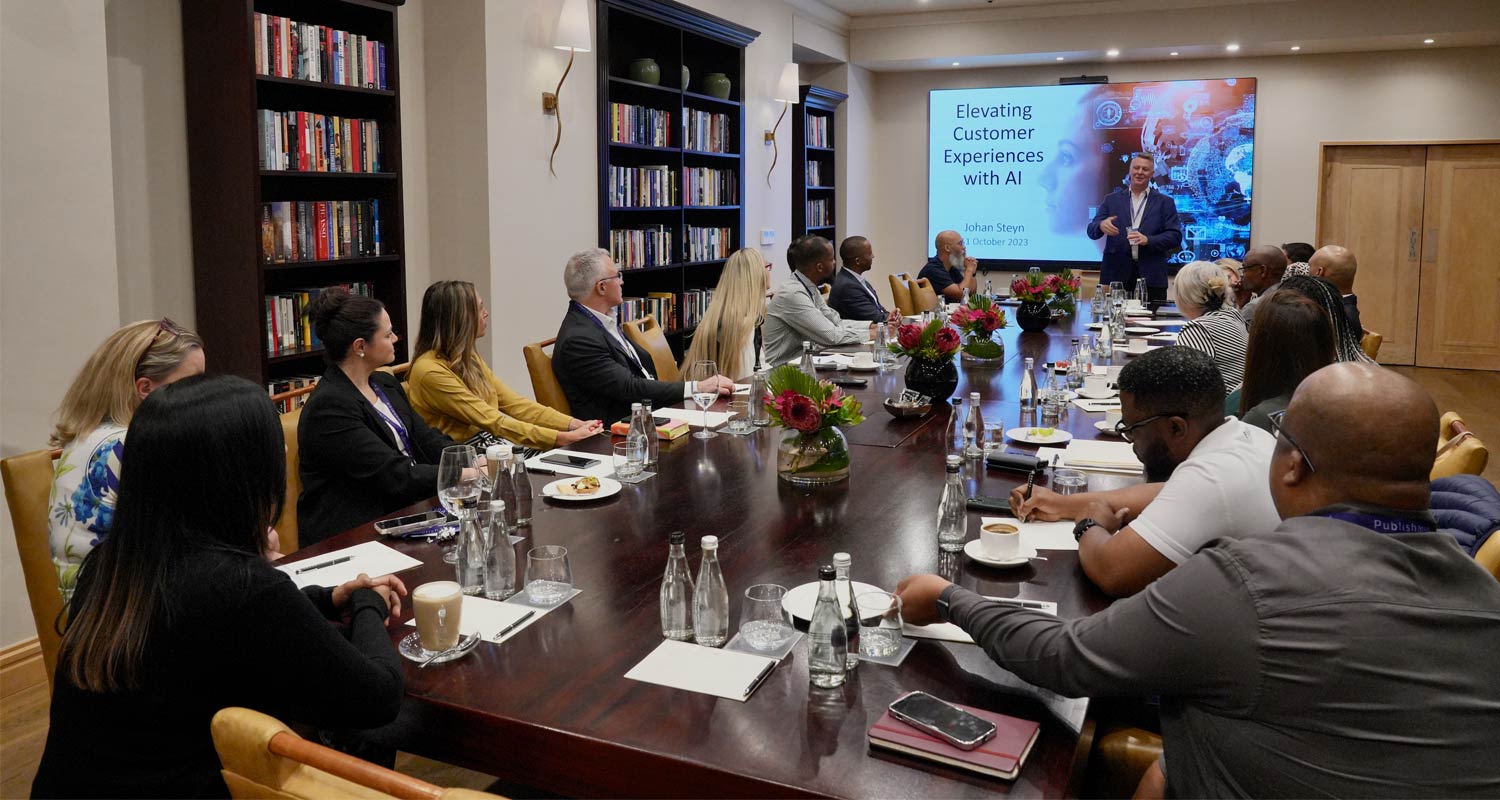 Artificial intelligence is no longer a distant, futuristic concept – it’s here and now, and it’s reshaping industries and transforming the way businesses interact with their customers.
Artificial intelligence is no longer a distant, futuristic concept – it’s here and now, and it’s reshaping industries and transforming the way businesses interact with their customers.
AI could be one of the greatest disruptions to the business world – and to life in general – that we’ve seen thus far in human history. In large part, that’s due to the breakneck speed with which the disruption is happening right before our eyes.
From enhancing customer experiences to optimising operations, AI offers a wealth of opportunities, however, with this potential comes an array of challenges and considerations.
Ethical concerns surrounding AI bias and data privacy must be thoughtfully addressed. The need for data quality and transparency is paramount, as it underpins the reliability of AI applications. Balancing automation with job displacement requires strategic planning.
To unpack the growing trends of artificial intelligence, particularly the potential impact on customer experiences, TechCentral hosted a round-table conversation sponsored by BlueSky and Salesforce with some of the country’s leading executives across a range of industries at the Saxon Hotel & Spa in Sandton.
Attendees delved into the opportunities and challenges presented by AI, the potential impact of AI innovations on customer experiences and financial markets, and the inevitable regulatory considerations that accompany transformation.
No magic wand
They all agreed that AI has the potential to elevate customer experiences by providing personalised interactions, anticipating customer needs, streamlining support, enhancing product and service quality, and automating repetitive tasks.
There was consensus that AI is not a magic wand. Success requires a strategic approach, a deep understanding of customer needs, and a commitment to data privacy, security and ethical practices.
AI innovations are reshaping the customer experience landscape, making interactions more seamless, intuitive and tailored. Here’s an overview from delegates of the specific use cases and applications of AI that have been found to be most effective for enhancing customer sales:
- Personalised customer interactions and streamlined customer support: Organisations are using AI-powered customer support systems,such as chatbots and virtual assistants to offer efficient and tailored interactions around the clock. Typically, they handle routine queries, allowing human agents to focus on more complex issues, improving efficiency and reducing response times. AI is also being used to assist human agents by providing real-time information and suggested solutions, leading to faster issue resolution.
- Predictive analytics for customer insights: AI-driven predictive analytics provides valuable insights into customer behaviour and preferences. Analysing historical data using AI, entities can then predict future trends and customer needs. This enables them to proactively address customer concerns, offer recommendations and optimise their service offerings.
- Enhancing product and service quality: AI plays a crucial role in quality control. In manufacturing, AI-powered systems are being used to monitor production lines, detect defects and make real-time adjustments. In the service industry, it’s being used to analyse customer feedback to identify areas for improvement.
- Tailored marketing campaigns: AI is being used to segment customers based on their behaviour and preferences, allowing businesses to send customised marketing message.
- Automating routine tasks: AI excels at automating repetitive and onerous tasks, freeing up human resources and ensuring greater accuracy and consistency.
 A strategic approach
A strategic approach
While attendees recognised the immense potential and benefits of AI, they also stressed that achieving a successful AI transformation requires a strategic approach. They shared guidelines and for organisations embarking on an AI journey:
- Define clear objectives: The first step in any successful AI transformation is to define clear and specific objectives. These objectives should align with the company’s broader strategic vision and mission.
- Invest in talent: AI transformation requires a skilled workforce. Hiring data scientists, machine learning engineers and other AI experts is essential. Additionally, entities should invest in training programmes to upskill existing employees and foster AI literacy.
- Data – the foundation of AI: Ensuring that the business has clean, high-quality data is key to maintain ingdata integrity and security.
- Choosing the right technology stack: Selecting the right AI technologies and tools is critical to building in-house capabilities or leveraging external AI solutions.
- Start small, scale quickly: Begin with small, manageable projects that can demonstrate quick wins and build momentum. As you gain experience and confidence, gradually scale up your AI initiatives. A phased approach allows organisations to adapt to challenges.
- Foster cross-functional collaboration: Encourage collaboration between business units, IT departments and data science teams for diverse perspectives, and ensure AI solutions align with organisational objectives.
- Change management: Firms must prepare for cultural shifts, manage employee expectations and gain buy-in for AI adoption.
- Monitor and measure progress: Establish KPIs to measure and track the value and impact of AI initiatives, and regularly monitor and measure progress against these metrics.
- Embrace ethical AI: AI transformation should be guided by ethical principles such as fairness, transparency and accountability, to build trust with customers and stakeholders.
- Stay informed and adapt: Stay informed about the latest AI developments, trends and best practices to adapt your AI strategy as new opportunities and challenges arise.
Outlook
Attendees agreed that AI innovation is poised to reshape the future of customer experiences in profound ways in the next few years. Customisation will be taken to new heights, with AI systems not just understanding individual preferences but also predicting needs before customers are aware of them.
Hyper-personalised recommendations and interactions will become the norm, fostering stronger customer loyalty, and AI-driven virtual assistants will be more conversational and context-aware, making interactions feel more natural and human.
Finally, chatbots will become smarter, capable of handling increasingly complex inquiries and tasks, while AI-powered language translation will eliminate language barriers, making global interactions smoother.
TechCentral, BlueSky and Salesforce thank all of those who participated in the round-table discussion.
- Read more articles by BlueSky on TechCentral
- This promoted content was paid for by the party concerned




